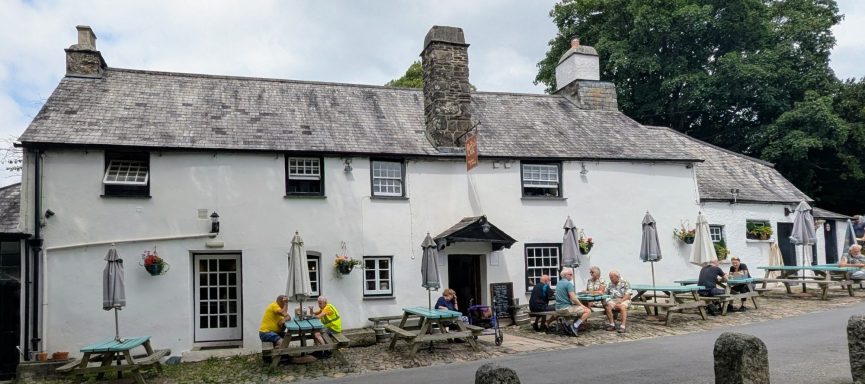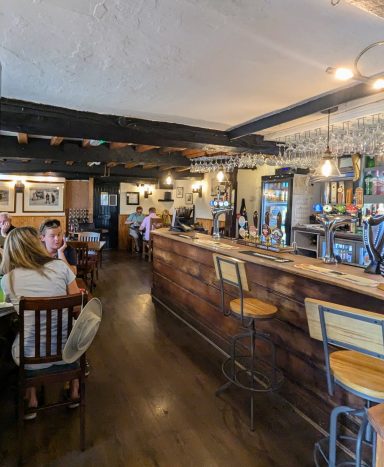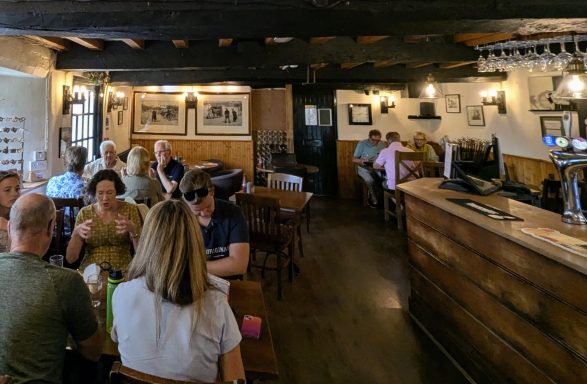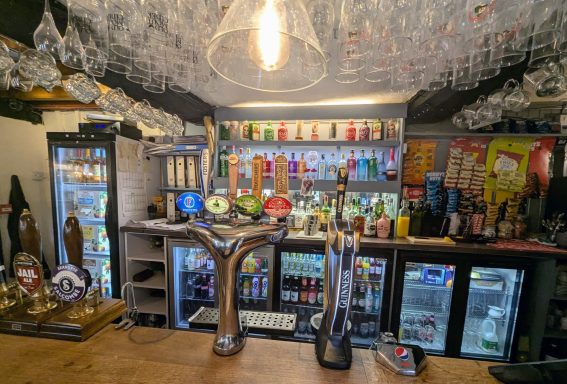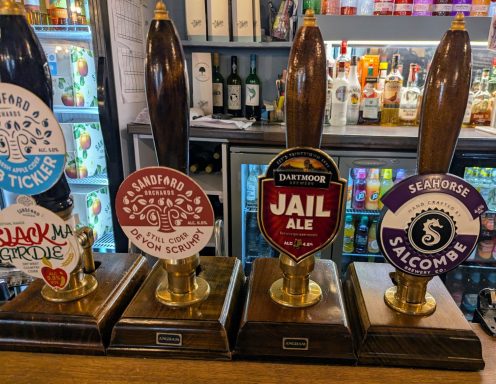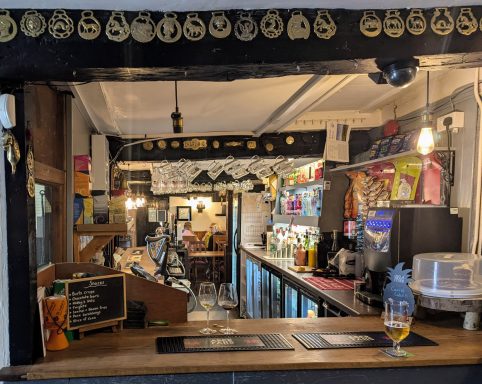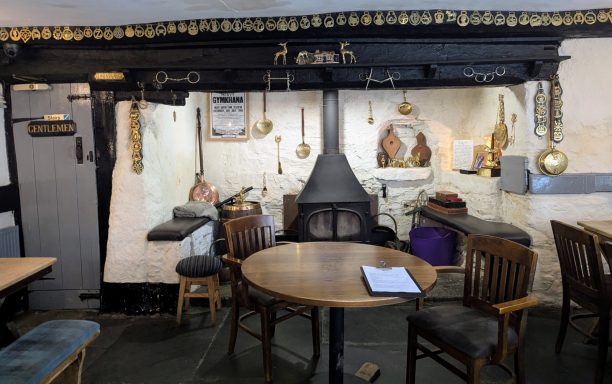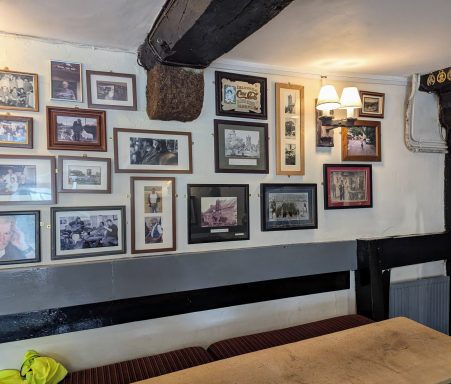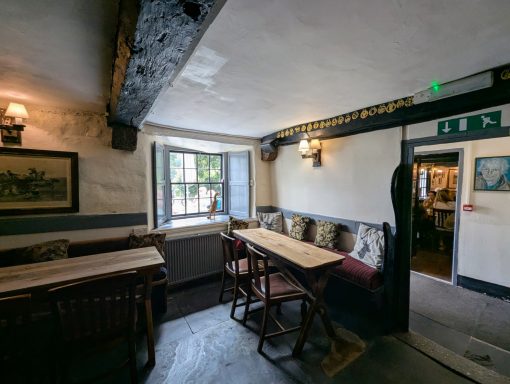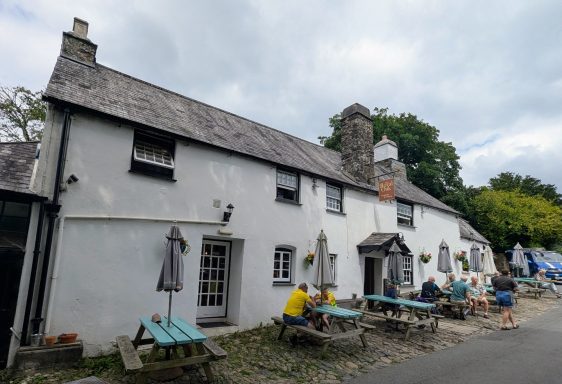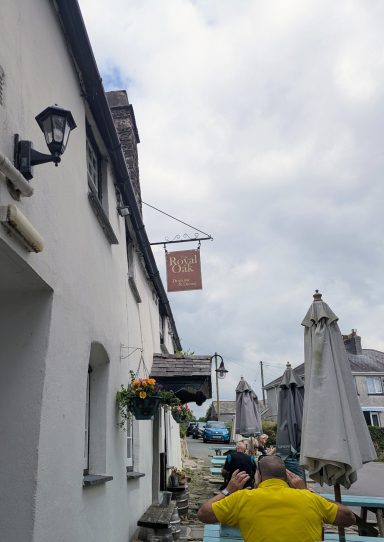The Royal Oak Inn
Imagine stepping into a place where time seems to slow down in a beautiful thatched country Inn. From the moment you arrive, you'll feel right at home, thanks to the genuinely friendly barstaff who always have a warm smile and a ready chat, making every visitor feel like a local.
Inside, there's just such a lovely vibe and atmosphere. It's that comforting, cozy feeling, perfect for whiling away an afternoon. You can feel the laughter and good cheer that's been shared within these walls for generations.
And when hunger strikes, just a peek at the menu will confirm the food looks truly tasty – wholesome, hearty fare, just what you need after a ramble across the moors or a leisurely cycle.
But perhaps one of the most delightful spots is right out the front, where you can sit and watch the world go by. You'll be overlooking the quintessential English village green, a peaceful view that melts away worries and reminds you of simpler pleasures.
For those who appreciate a good pint, there's a fair selection on tap, often featuring local ales and refreshing ciders, truly celebrating the best of the countryside. All in all, it's nothing short of a fantastic country inn – a real gem that captures the heart and soul of rural England.
P&P
Bacground....
Early Ownership and Name: The pub was originally owned by the church and was known as The Church House Inn. It's located next to St Peter's Church and was built within the churchyard, serving as a pre-Reformation forerunner of a parish hall.
19th Century and Parish Ownership: From the 19th century, the task of letting the pub was given to the Guardians of the Poor of the Tavistock Union, though the Meavy Parish meeting retained responsibility for choosing the tenant. In 1903, the Meavy Parish Meeting sought and gained powers from Devon County Council to take over the letting of the Royal Oak Inn, making it the responsibility of the ratepayers.
Unique Ownership: Since the merger of the parishes of Meavy, Sheepstor, and Walkhampton to form Burrator Grouped Parish in 1974, the building has been owned by Burrator Parish Council. It is believed to be the only pub in England & Wales owned by a Parish Council. The funds from the lease are now used to reduce the Burrator Parish Precept, which is added to the council tax for properties within the parish.
Architectural Evolution: The building was likely rebuilt in the 16th century and has undergone many alterations. A receipt from 1589 even mentions wine and ale purchased there. The current front entrance was added in the early 1800s, with the original entrance being a stone arched doorway to the left. An upstairs fireplace, possibly where monks slept, served a chimney that was restored in 1991. In 1964, kitchen facilities were moved downstairs, and bars were placed on each side of the entrance.
Connection to the Meavy Oak: The inn takes its name from the ancient Meavy Oak tree on the village green, which is estimated to be over 900 years old.1 This tree has its own legends, including being a "dancing tree" where a platform was erected for musicians during fairs, and a tradition that nine guests once dined inside its hollow trunk.2 It was also historically used by the publican of the Royal Oak Inn to store peat.
Census Records: Census records provide a glimpse into the lives of the innkeepers and their families:
1841: Nicholas Ware (Inn Keeper), his wife Margret, and their children.
1851: Francis Selleck (Publican), his wife Mary Ann, and their daughter.
1861: Francis Selleck (Publican & Farmer), his wife Mary Ann, and their numerous children.
Modern Day: The Royal Oak Inn remains a community pub, expertly run, and offers a menu of pub food. It's a popular spot for visitors exploring Dartmoor, being just over a mile from Burrator Reservoir. The village of Meavy itself has been a filming location for films and television, bringing famous faces to the area.
The Royal Oak Inn stands as a significant historical landmark, deeply intertwined with the history of Meavy village and its ancient oak tree.

